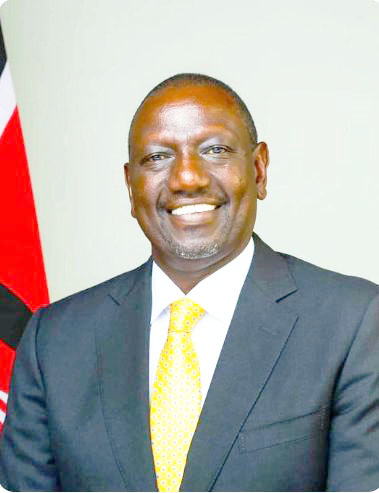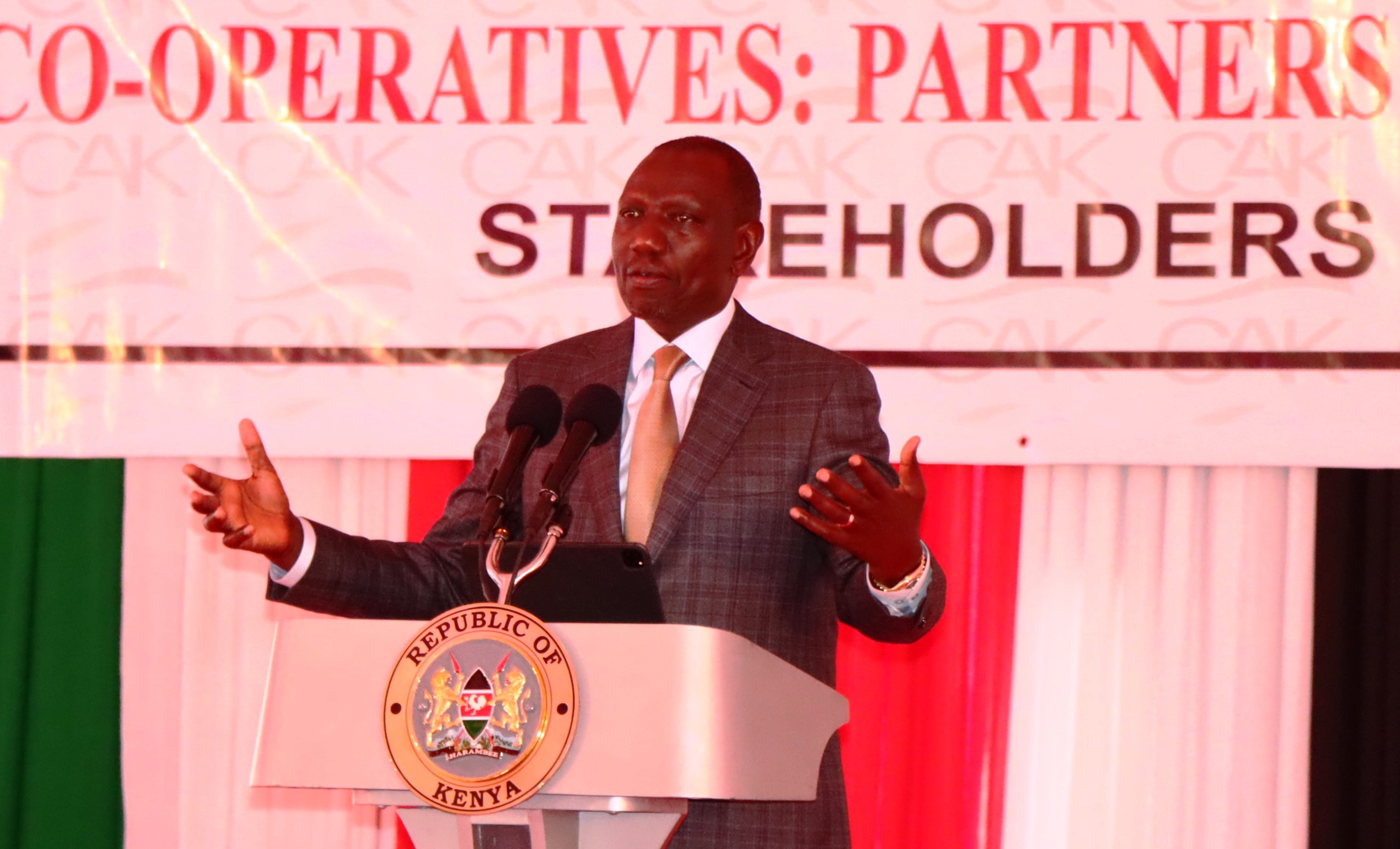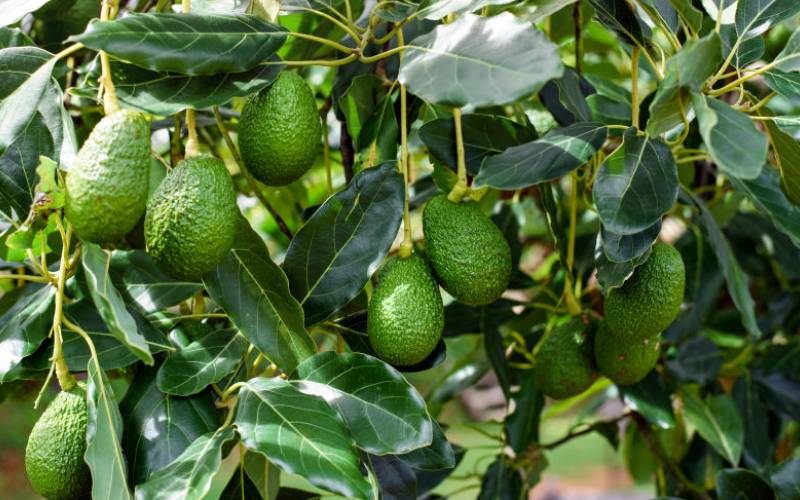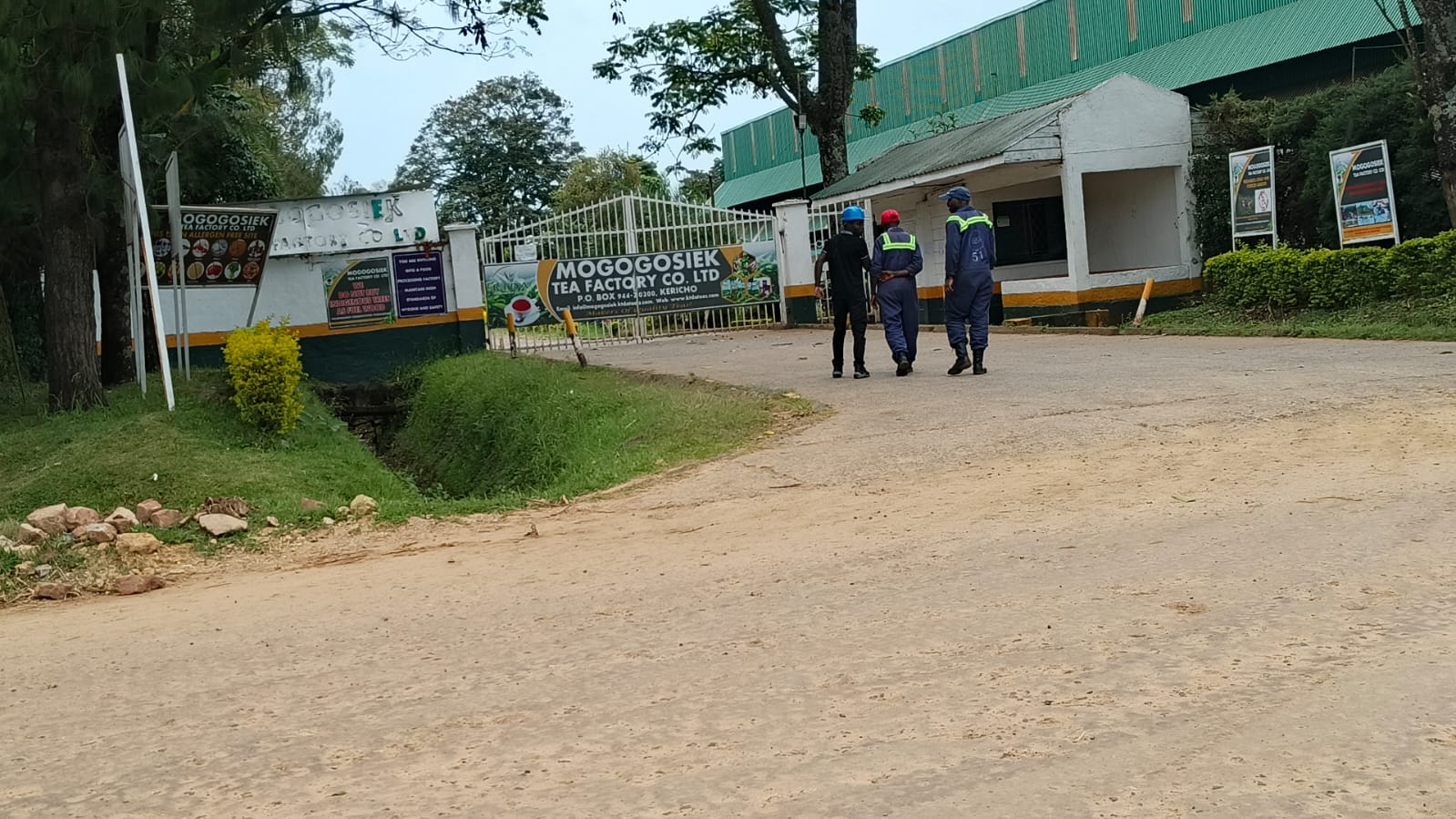President William Ruto has assured cooperative sector stakeholders that his government will fully implement the National Co-operative Policy in plans to strengthen the multi-billion shilling sector.
He said the movement has contributed immensely to national socio-economic development.
“The government is determined to take appropriate measures to ensure full implementation of Sessional Paper Number 4 of 2020 on National Cooperative Policy, which recognizes and embraces the fundamental mandate of ‘Promoting Cooperatives for Socio-Economic Transformation’,” he said.
Dr. Ruto stated that the new policy measures will include the establishment of a central liquidity facility and shared services platform, which will enhance the efficiency and quality of Sacco services while reducing operational risks encountered by Saccos.
If implemented, the facility will see Savings and Credit Co-operatives (Saccos) borrow from each other instead of going for loans from other financial institutions, in a way just similar to inter-bank money market run by commercial banks.
According to Dr. Ruto, the changes will also facilitate short-term inter-Sacco borrowing and similarly facilitate access to the national payment system; thereby providing effective solutions to liquidity challenges and enhancing financial stability in the sector.
“The government is committed to supporting the sector through institutional reform measures, including the harmonization of legislation governing various crops with the aim of reducing the cost of production, thereby boosting production and competitiveness,” said Dr. Ruto.

He assured stakeholders that he will broaden the dairy market to ensure that farmers supply their produce to regional and African markets through investing in preservation and processing infrastructure.
In the 2023/2024 Financial Year, the National Treasury allocated a total of Ksh3.7 billion to de-risking, inclusion and value enhancement of pastoralist economies, Ksh2.1 billion for livestock value chain support, Ksh1.5 billion for livestock commercialization, and Ksh166 million for the Embryo Transfer Project to improve livestock production.
The President further said that they are collaborating with county governments to set up aggregation and distribution centres for storage, value addition and marketing of agricultural produce to reduce post-harvest losses, eliminate predatory cartels, and boost farmers’ incomes.
He added that the interventions in the dairy sector, including the waiver of duty on the ingredients of animal feeds, are all aimed at raising national milk production from 2 litres per cow on average to 7 litres daily, thus enhancing smallholder incomes.
Recently, there has been a reduction in milk production due to prolonged drought and below average rainfall, leading to low milk supply to cooperatives, milk coolers and processing facilities, effectively increasing producer prices.
On the coffee sub-sector, the President said there were plans to refurbish factories’ infrastructure, explore new export market opportunities in anticipation of increased coffee production, as well as create an enabling environment for the Kenya Planters’ Cooperatives Union (KPCU) to mill and market coffee, provide affordable credit, and subsidize inputs to coffee growers.
He added that plans were underway to improve coffee productivity from 2Kgs per tree to 5Kgs, resultantly raising the national production from 51,000 metric tonnes (MT) to 81,000 in the next crop year. In the next 5 years, he said he envisages that production will rise to above 200,000MT.
He also revealed that new fresh produce cooling and processing plants are being established in various centres across the country; including Kipipiri, Ndaragwa, Ol Joro Orok, Kesses, Timboroa, Londiani, Elburgon, Molo and Mogotio that target to improve the horticulture value chain.
He also said that the government is committed to supporting a number of fishing cooperatives in Nyanza and Coast regions to enable them acquire cold rooms and fish processing equipment.
By Roy Hezron
Get more stories from our website: Sacco Review.
For comments and clarifications, write to: Saccoreview@shrendpublishers.co.ke
Kindly follow our Facebook Page: Sacco Review Newspaper for timely updates.



